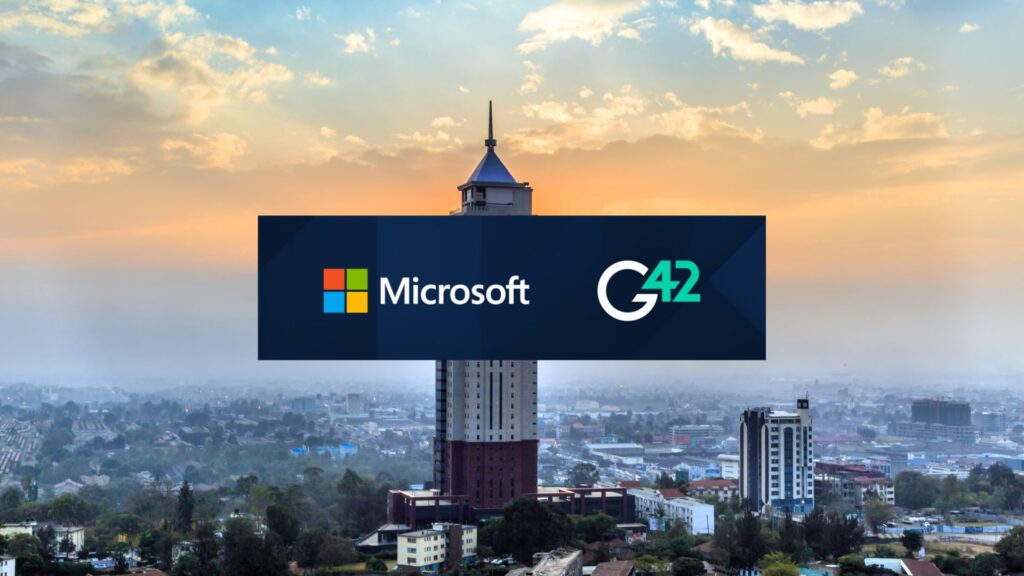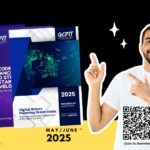
The African continent is poised for a significant leap in technology infrastructure and artificial intelligence (AI) capabilities. In a groundbreaking partnership, Microsoft and G42, a leading artificial intelligence firm from the United Arab Emirates (UAE), have announced a $1 billion investment to build a state-of-the-art, geothermal-powered data center in Kenya. This project marks a significant milestone in several ways: it advances sustainable data center practices, bolsters African cloud computing capabilities, and paves the way for the development of AI solutions tailored to African languages.
A Sustainable Data Center Revolution
Data centers, the backbone of the digital world, are notoriously energy-intensive. However, the Kenya data center project prioritizes sustainability. G42, with its experience in building large-scale data centers, will leverage Kenya’s abundant geothermal resources to power the facility entirely. This approach significantly reduces the data center’s carbon footprint, aligning with Microsoft’s and G42’s commitment to environmentally conscious technology solutions.
The Kenyan data center will serve as a model for future sustainable data center development across Africa and beyond. This focus on green technology positions Africa at the forefront of responsible data center practices, setting a benchmark for other regions.
Boosting Africa’s Cloud Infrastructure
The new data center will be a critical addition to Africa’s cloud computing infrastructure. Currently, Africa lags behind other regions in cloud adoption due to limited infrastructure and connectivity challenges. This project, bringing Microsoft Azure directly to Kenya through an East Africa Cloud Region, will provide businesses and organizations across the continent with access to scalable, reliable cloud resources.
The increased accessibility to cloud computing fosters innovation and empowers businesses of all sizes. This can propel economic growth in Africa by facilitating the development and deployment of new digital solutions across various sectors, from agriculture and healthcare to finance and education.
Unlocking the Power of AI for Africa
Perhaps the most exciting aspect of the Microsoft-G42 partnership lies in the planned development of large language models (LLMs) for African languages, specifically Swahili. LLMs are powerful AI models trained on massive datasets, allowing them to perform tasks like language translation, text generation, and question answering. Developing LLMs for African languages has the potential to revolutionize communication, education, and access to information across the continent.
Currently, most LLMs are trained on English data, limiting their usefulness in regions with diverse languages. By developing a Swahili LLM, the project aims to bridge this gap. Imagine educational resources and government services readily available in local languages, or businesses being able to communicate more effectively with customers. This has the potential to break down communication barriers and empower African communities.
A Catalyst for Broader AI Adoption
The development of an LLM for Swahili is just the first step. This project can serve as a catalyst for further AI development tailored to African needs and challenges. Imagine AI solutions used for precision agriculture, disease diagnosis, or personalized learning tailored to specific African contexts. By prioritizing local languages and addressing regional challenges, AI can become a powerful tool for inclusive progress and development in Africa.
Challenges and Opportunities
Building this ambitious project requires navigating some key challenges:
- Skilled Workforce Development: Successfully operating and maintaining a state-of-the-art data center and utilizing advanced AI tools like LLMs requires a skilled workforce. The project will need to address this by investing in training programs and attracting talent within the region.
- Data Security and Privacy: As data becomes increasingly central to all aspects of life, data security and privacy are paramount concerns. Microsoft and G42 will need to implement robust security measures and operate within a framework that respects user privacy and data protection regulations.
- Digital Literacy and Connectivity: While the data center will enhance cloud access, digital literacy remains a challenge in some parts of Africa. Efforts will be needed to ensure that communities can fully benefit from the technology being introduced.
A Vision for a Digital Africa
Despite these challenges, the Microsoft-G42 partnership holds immense promise for Africa’s digital future. The Kenyan data center sets a high bar for sustainable data center practices, while the development of AI solutions tailored to African languages opens doors to new possibilities for innovation and development. This project signifies a significant step forward, paving the way for a future where Africa leverages technology to address its unique challenges and propel itself towards a more prosperous and inclusive future.
Looking Ahead: A Collaborative Effort
The success of this project hinges on collaboration. Microsoft and G42’s expertise, combined with Kenyan government support and the participation of local talent, will be crucial. Collaboration with other African nations and stakeholders will be essential for ensuring the project’s benefits reach across the continent.
With a commitment to sustainability, inclusivity, and responsible technology development, the Microsoft-G42 partnership in Kenya has the potential to become a blueprint for future technology projects in Africa. This collaborative effort can serve as a model for other international partnerships seeking to bridge the digital divide and empower African nations through:
- Knowledge Transfer and Capacity Building: Training programs can be established to equip local talent with the necessary skills to operate the data center, utilize AI tools, and build their own innovative solutions. This knowledge transfer will empower African nations to become self-sufficient in managing and utilizing advanced technologies.
- Public-Private Partnerships: The Kenyan data center project showcases the benefits of collaboration between private companies and governments. This model can be replicated for other technology initiatives, leveraging the expertise of private companies and the resources of governments to create solutions that address public needs.
- Focus on Open Innovation: Encouraging open innovation platforms where local developers and researchers can collaborate with international partners can accelerate the development of AI solutions tailored to African contexts. This fosters a culture of innovation and ensures that the technology being developed truly addresses the specific needs of African communities.
A Beacon of Progress in Africa
The Microsoft-G42 partnership in Kenya is more than just a data center; it’s a beacon of progress for Africa’s digital future. By prioritizing sustainability, inclusivity, and responsible technology development, this project sets a positive example for future initiatives. The success of this collaboration can inspire similar partnerships across the continent, paving the way for a more digitally connected, prosperous, and innovative Africa.






